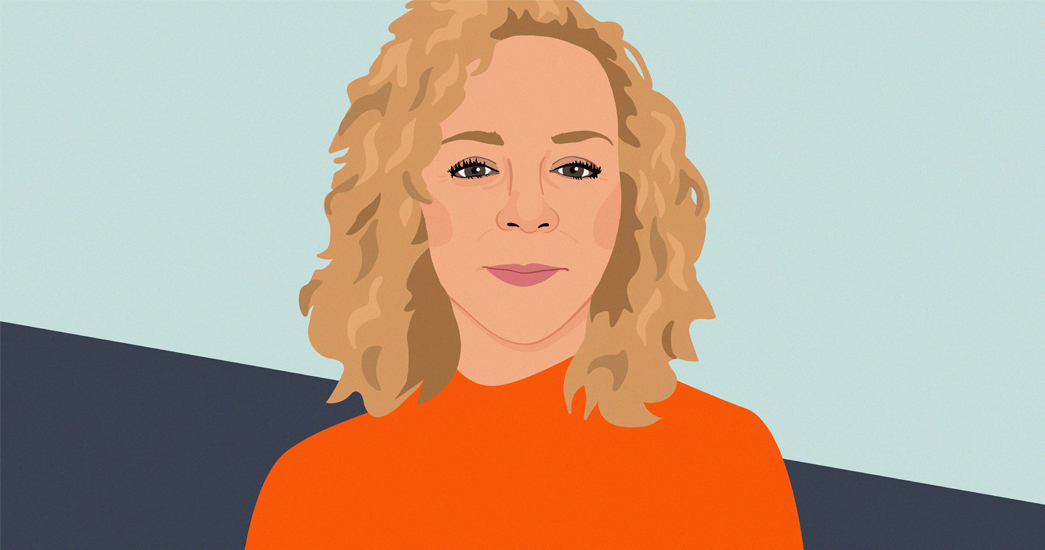
Published May 2022
As the U.S. enters the third year of the COVID-19 pandemic, the American Hospital Association is urging Congress to address workforce challenges in health care facilities, indicating that it should now be considered a national emergency. Due to an influx in COVID-19 patients, physicians and nurses are working longer hours and different shifts, forcing them to spend more time at work and less time at home.
For Mary Guanci, MSN, RN, FNCS, CNRN, SCRN, former clinical nurse specialist from the neuro ICU at Massachusetts General Hospital (MGH), COVID-19 wasn’t the first public health emergency that she had experienced.
“Given my experience, I am very concerned about what nurses may be going through right now,” she said. “I was working in health care during the AIDS epidemic. Though a different health crisis, I experienced firsthand the toll a public health emergency takes on nurses, and other health care workers, both physically and emotionally.”
From hospitals to nursing homes, the U.S. health care system continues to experience significant challenges associated with the workforce shortage. And yet, as it shows no signs of slowing down, health care professionals are stepping up even more to help.
 A return to work for retirees.
A return to work for retirees.
While some health care organizations have turned to contract and travel nurses or digital staffing app solutions like Massachusetts-based ConnectRN to alleviate fluctuating staffing levels, there’s also been another group stepping in. Some health care retirees—either those who were set to retire or those who already went into retirement—opted to rejoin the workforce to help.
Mary, for example, retired from nursing after 42 years of working at MGH. When COVID-19 hit, however, she immediately thought of her colleagues who were dealing with large patient volumes.
At one point, Mary asked herself, “What am I doing here?” as she stayed at home in quarantine and watched case numbers climb. “As colleagues, you understand the importance of supporting one another,” she said. “Everybody handles stress and emotions in different ways, so just being there and being supportive of your colleagues can make a huge difference. This is what ultimately drove me back to the workforce.”
At MGH, bringing staff back, like Mary, helped to alleviate concerns around staffing. “Some staff commented that seeing people come back to the workforce that had retired showed how the hospital cared about finding ways to support those still in the field,” explained Mary. “The overwhelming support of the public, such as sending food and cards and donating equipment to aid family communication, helped nurses stay resilient as well during these very trying times. Remember, nurses and other colleagues are concerned about their patients, but also the risk to themselves and their own families.”
 Preventing burnout and managing stress by prioritizing well-being.
Preventing burnout and managing stress by prioritizing well-being.
Prior to the pandemic, health care workers were at twice the risk for burnout compared to the general population and many reported depression and suicidal thoughts. The increased demands as a result of the pandemic only exacerbated the health care personnel shortage. However, it has prompted many employers to rethink how they are supporting their workforce to ensure staff can do their jobs effectively while also feeling that their needs are met.
Point32Health company, Harvard Pilgrim Health Care, has a history of partnering with hospital systems and provider groups to help support the mental well-being of their health care professionals through its Living Well Program.
The health plan’s Mind the Moment mindfulness program has gained awareness among health care professionals as being a valuable tool in helping provide navigation through the often difficult and stressful situations on the job. Recently, the Living Well team has also partnered with neuroscientist Dr. Amishi Jha on mindfulness programming that’s specifically designed to support the mood and performance of individuals who must perform at the highest level in high- stress, high-stakes environments, health care settings included.
“While there is no one solution to tackling the intricate challenges faced by health care professionals, mindfulness-based practices are a great way to manage the stress of work,” said Tami Ireland, director of health engagement at Point32Health. “Our experts offering mindfulness programs for clinicians and hospital staff include MDs, researchers and trainers who have been working in the health care field for decades.”
Ireland explained that all mindfulness programs are customizable and can be tailored to best meet the needs of employees. Seminars led by nationally recognized experts, half-day or full-day retreats and live or pre-recorded centering exercises for staff on the go are just some of the offerings that are available to health care professionals.
 Continuing a nursing career outside of a clinical setting.
Continuing a nursing career outside of a clinical setting.
For those in the health care field who are interested in a profession outside of a hospital or clinical setting, there are options. Point32Health, for instance, is committed to creating career paths that can support nurses and clinicians who wish to continue to pursue their passions and career outside of a traditional, oftentimes high-stress, clinical setting. For Point32Health’s population health and care management teams, nearly all team members are nurses or nurse practitioners who come from a clinical background.
“Our nurses can engage with members via phone or video, and can also see them face-to-face with at-home visits. For our nurse practitioners, they will go see our members with complex conditions out in the community or in a nursing home,” explained Laura Black, vice president of population health at Point32Health. “Being able to see a member in their home is the most rewarding experience for our providers, and it allows us to take the time to understand them as a whole person.”
These individuals also can pursue other career paths within the organization, said Black. “Whether it’s a leadership position or a job in project management or data analytics, our nurses and nurse practitioners have the ability to explore different roles beyond the traditional care setting,” continued Black. “Having that clinical foundation and then being able to leverage other skills and talents allow for many growth opportunities.”
 Rebuilding the workforce and retaining talent.
Rebuilding the workforce and retaining talent.
Health care workers have faced unprecedented challenges and increased levels of stress over the past few years. As we eventually near the end of the pandemic or shift into an endemic phase of COVID-19, the focus needs to be on rebuilding the health care workforce—and retaining them within the profession.
“It’s important that nurses have a voice,” said Mary. “Not only do we need to elevate and showcase the work of nurses, but we also need grants and funding to support individuals who want to pursue nursing.”
Despite the toll COVID-19 has taken on nurses, nursing school applications are on the rise. Whether you’re seeking a career in nursing, came out of retirement to work during the pandemic or are currently working in the field, nursing is an opportunity and a challenge. To all nursing professionals, we salute you and greatly appreciate your dedication and hard work each and every day.
To confirm eligibility for any programs or services mentioned in this article as it relates to your specific health plan, please reach out to your account executive or HR benefits team. You may also speak to our member services team at (888)-333-4742 or by sending a secure email. And for plan details and other member resources, log in to the member portal.


